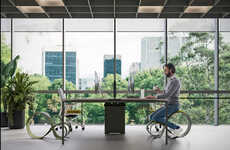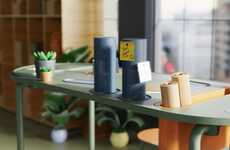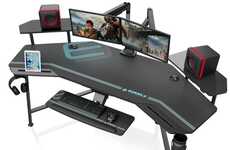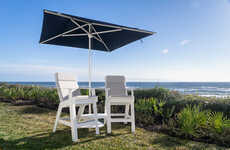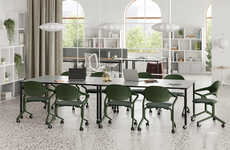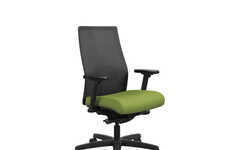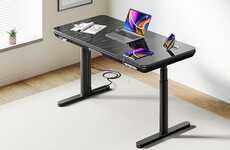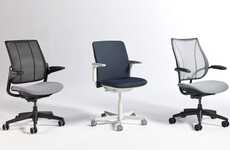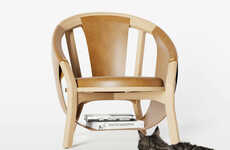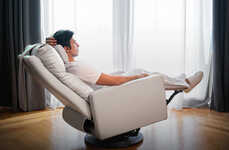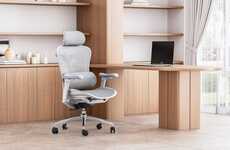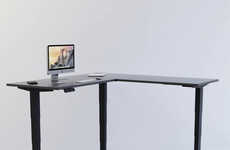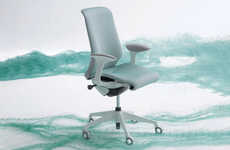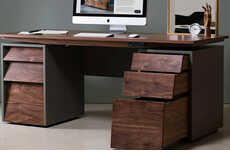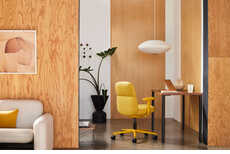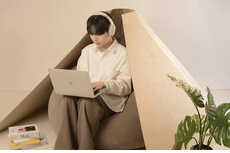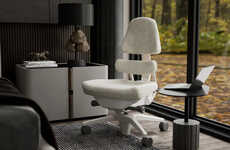
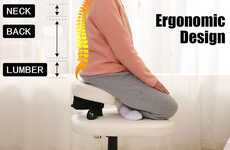
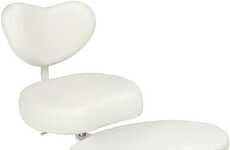

Brands are launching chairs that provide small amounts of movement and stimulation
Trend - ADHD chairs are designed to support movement and focus by providing subtle stimulation. These features help concentration and alertness, addressing the challenges faced by many with ADHD in maintaining focus, especially in environments that require prolonged periods of sitting, such as classrooms and offices.
Insight - The growing recognition of ADHD is part of a broader push towards inclusivity and the creation of spaces designed for diverse needs, with the goal of challenging conventional standards. This reflects a societal embrace of neurodiversity, with the understanding that customizing environments can significantly help communities that have been mainly underserved. As advocacy for neurodiversity grows, brands have a golden opportunity to pioneer in neuro-inclusive design, paving the way for spaces that are both more equitable and effective.
Insight - The growing recognition of ADHD is part of a broader push towards inclusivity and the creation of spaces designed for diverse needs, with the goal of challenging conventional standards. This reflects a societal embrace of neurodiversity, with the understanding that customizing environments can significantly help communities that have been mainly underserved. As advocacy for neurodiversity grows, brands have a golden opportunity to pioneer in neuro-inclusive design, paving the way for spaces that are both more equitable and effective.
Workshop Question - How can your brand incorporate neuro-inclusive design principles to create products that cater to individual needs?
Trend Themes
1. Neuro-inclusive Furniture - The rise of ADHD-friendly chairs signals a shift in office and home furniture, aiming to provide comfort and adaptability for neurodiverse individuals.
2. Dynamic Seating Solutions - Chairs designed for multiple sitting positions, like the cross-legged and fidget-friendly versions, highlight a trend towards versatile seating that accommodates constant movement.
3. Ergonomic Innovations - The development of chairs with advanced ergonomic features, such as 4D armrests and orthotic registration, is driving the evolution of more health-conscious seating options.
Industry Implications
1. Office Furniture - Incorporation of ADHD-supportive features into office chairs represents an emerging trend towards crafting workspaces that cater to a diverse workforce.
2. Educational Furniture - The inclusion of ADHD-friendly seating in educational environments points to a growing market for classroom furniture that supports varied learning needs.
3. Home Office Equipment - As remote work continues to rise, the home office furniture industry benefits from innovative designs that promote comfort and productivity for individuals with ADHD.
4 Featured, 23 Examples:
34,925 Total Clicks
Date Range:
Sep 23 — Apr 24
Trending:
This Year and Hot
Consumer Insight Topics:

